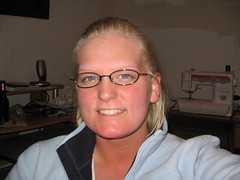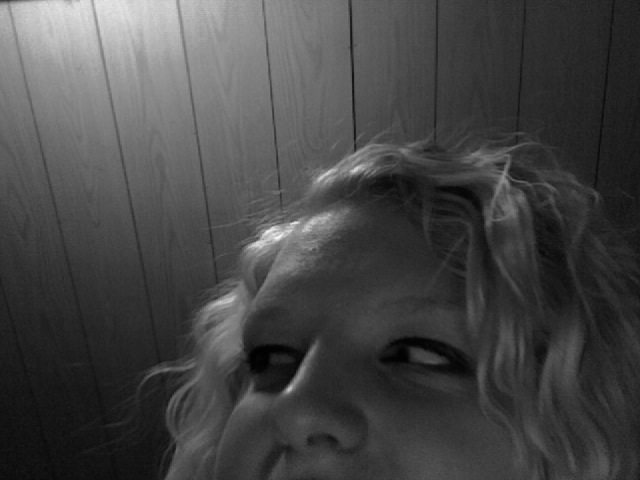The New York Times
Thursday, March 22nd, 2007
pgsD1&D7
The Story
The Summary: A family in Manhattan is trying to make "No Impact" by only buying food, fresh produce and the like, and making no waste.
Welcome to Walden Pond, Fifth Avenue style. Isabella’s parents, Colin Beavan, 43, a writer of historical nonfiction, and Michelle Conlin, 39, a senior writer at Business Week, are four months into a yearlong lifestyle experiment they call No Impact. Its rules are evolving, as Mr. Beavan will tell you, but to date include eating only food (organically) grown within a 250-mile radius of Manhattan; (mostly) no shopping for anything except said food; producing no trash (except compost, see above); using no paper; and, most intriguingly, using no carbon-fueled transportation.
Mr. Beavan, who has written one book about the origins of forensic detective work and another about D-Day, said he was ready for a new subject, hoping to tread more lightly on the planet and maybe be an inspiration to others in the process.
Also, he needed a new book project and the No Impact year was the only one of four possibilities his agent thought would sell. This being 2007, Mr. Beavan is showcasing No Impact in a blog (noimpactman.com) laced with links and testimonials from New Environmentalist authorities like treehugger.com. His agent did indeed secure him a book deal, with Farrar, Straus & Giroux, and he and his family are being tailed by Laura Gabbert, a documentary filmmaker and Ms. Conlin’s best friend.
I couldn't imagine it! No garbage, no waste (or as little as possible) I know I couldn't do it. I try not to create too much garbage, and we recycle fairly well at my house, but nothing as drastic as this. I couldn't imagine a compost heap inside an apartment. Compost is an outside thing... it's for gardens. I don't think I'd like the smell of rotting food in my house constantly. It's bad enough when the trash needs to be taken out.
Before No Impact — this is a phrase that comes up a lot — Ms. Conlin and Mr. Beavan were living a near parody of urban professional life. Ms. Conlin, who bought this apartment in 1999 when she was still single, used the stove so infrequently (as in, never, she said) that Con Edison called to find out if it was broken. (Mr. Beavan, now the family cook, questioned whether she had yet to turn it on. Ms. Conlin ignored him.)
In this household, food was something you dialed for.
“We would wake up and call ‘the man,’ ” Ms. Conlin said, “and he would bring us two newspapers and coffee in Styrofoam cups. Sometimes we’d call two men, and get bagels from Bagel Bob’s. For lunch I’d find myself at Wendy’s, with a Dunkin’ Donuts chaser. Isabella would point to guys on bikes and cry: ‘The man! The man!’ ”
As drastic as the experiement is, I think everyone could take a few pointers from this family. They basically went from one extreme to the other. There's a happy medium that I think is attainable for everyone. Doing things like switching regular light bulbs for flourescent ones, and cooking more and eating out less, and using carbon-based travel as little as possible(I try to get groceries and run other errands after work, so I'm not making two trips across town) are things that every household can do.
The television, a flat-screen, high-definition 46-incher, is long gone. Saturday night charades are in. Mr. Beavan likes to talk about social glue — community building — as a natural byproduct of No Impact. The (fluorescent) lights are still on, and so is the stove. Mr. Beavan, who has a Ph.D. in applied physics, has not yet figured out a carbon-fuel-free power alternative that will run up here on the ninth floor, though he does subscribe to Con Ed’s Green Power program, for which he pays a premium, and which adds a measure of wind and hydro power to the old coal and nuclear grid.
The dishwasher is off, along with the microwave, the coffee machine and the food processor. Planes, trains, automobiles and that elevator are out, but the family is still doing laundry in the washing machines in the basement of the building. (Consider the ramifications of no-elevator living in a vertical city: one day recently, when Frankie the dog had digestive problems, Mr. Beavan, who takes Isabella to day care — six flights of stairs in a building six blocks away — and writes at the Writers Room on Astor Place — 12 flights of stairs, also six blocks away — estimated that by nightfall he had climbed 115 flights of stairs.) And they have not had the heart to take away the vacuum from their cleaning lady, who comes weekly (this week they took away her paper towels).
Think about how much healthier these people will be after this year. No junk food, their legs will be ripped from taking all the stairs, their arms all buff from carrying baskets of clothes up and down said stairs. A cleaner lifestyle is definately a healthier one. Of course, reader's of the author's blog have criticized the Colins-Beavan's for that:
“What’s with the public display of nonimpactness?” a reader named Bruce wrote on March 7. “Getting people to read a blog on their 50-watt L.C.D. monitors and buy a bound volume of postconsumer paper and show the filmed doc in a heated/air-conditioned movie theater, etc., sounds like nonimpact man is leading to a lot of impact. And how are you going to measure your nonimpact, except in rather self-centered ways like weight loss and better sex? (Wait, maybe I should stop there.)”
I think that awareness is the first step. And, yes, it takes some waste to get the word out there. Overall, I think that these things can only do good. Things have been getting better. Most paper products contain a percentage of recycled paper, many are becoming high content to 100% recycled. More and more people are using flourescent bulbs, one of my roommates and I got our other two roommates to start recycling more. (If I could only get them to shut off the lights when the leave.) People are becoming more aware. It's the day to day stuff that makes the most impact , anyway. It's not everyday most people see a movie or buy a book.


No comments:
Post a Comment